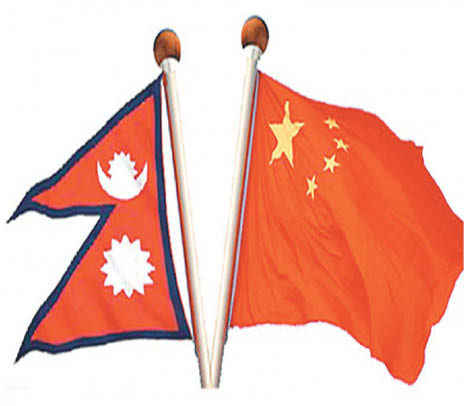Anti-Indianism is the core theme, with Beijing trying to establish its ‘strategic depth’ over Kathmandu.
New Delhi: The third phase of China’s grand plan to “colonize Nepal” is at play in Kathmandu with “anti-Indianism” as its core theme. Many argue that the ruling elites of Kathmandu valley who prop up the anti-India sentiments to showcase that they are Nepali nationalists are in the great game of real-politik becoming a tool into the hands of Beijing who had been trying to compete with New Delhi and is working on a long-term plan to overthrow India as Nepal’s historical, spiritual and economical partner since ages and establish its own domination in the Himalayan kingdom. The Sunday Guardian tried to trace how the Chinese great game is at play in Nepal by talking to two former Deputy Prime Ministers of Nepal, members of the erstwhile royal family of the Himalayan Kingdom, and experts to understand the various stages of this ploy, which ultimately aims to colonize Nepal and establish its domination over the Himalayan Kingdom. Nepal’s former Deputy Prime Minister and senior leader Rajendra Mahato told The Sunday Guardian: “A section of Nepal’s power elites are playing into the foreign hands who want to disturb Nepal’s special relationship with India. People like us who speak the truth that India-Nepal relationship cannot be replaced by any partnership had been branded as anti-Nepal and as Indian by them as they are hand in glove with the foreign powers which are trying to exert its own influence.” Another former deputy Prime Minister Upendra Yadav told the same thing to The Sunday Guardian from Kathmandu.
Experts and think tanks have pointed out that the Chinese great game against India and aim to colonize Nepal in the long-run had started much before anyone realized it. It is now in its third stage now. Anant Kumar Mohanty, a senior fellow of International Security and South Asian studies in a New Delhi-based think tank, said: “As we know, China works very steadily and silently. The start of Maoist insurgency was a first step in that direction. The Maoist activities started on their own, but it had a major hidden Chinese hand. The Nepalese Maoists propaganda since the 1970s used to target India and propagate that unless the Maoists of the South Asian region work jointly to counter India, final victory would not be possible. Nepalese Maoists used to say, “Maoism, in order to succeed and thrive in the region, needs to defeat India”. They maintained a close relationship with the Indian Maoists at that time. The Nepalese Maoists never criticized
It was the first step of China; the second step was started in early 2000s, when the Nepalese Maoists stepped up their propaganda campaign against King Gyanendra and the royal family calling them pro-India. The royal family of Nepal had a historical and a deep-rooted relationship with India. The removal of Hinduism as the official religion of Nepal, the 2006 comprehensive peace accord and joining of Maoists in the government were the success of the second phase. A member of the erstwhile Nepalese royal family told The Sunday Guardian from Kathmandu, “The insurgency was aimed at damaging India also as foreign powers hate the India-Nepal friendship.”
The third phase of Chinese expansionism in Nepal started in 2008, when the Maoists unexpectedly won the CA (Constituent Assembly) election; the Chinese used their ideological linkage to steadily nullify India’s influence and fuel anti-India sentiments among the power elites of Nepal. Being anti-India became the theme of the large section of the power elite in the Kathmandu valley. The Chinese got strongly engaged in gaining a strong strategic footprint under the garb of providing huge economic packages like under the Belt and Road Initiative (BRI), diplomatic and other development projects in an attempt to impact decision-making in Kathmandu. Such China’s engagement and influence has now increased both in geo-political and geo-strategic terms all over the world, but for Beijing, the Himalayan Kingdom was very important to encircle India. It is well-known that India’s differences with Nepal reached a new low during the term of the former Prime Minister of Nepal K.P. Sharma Oli who played the anti-India and Nepali nationalist card well to gain popularity in the hills by taking unilateral decisions like adding sovereign territories of India in the Kalapani region into the official political map of Nepal and rectifying it from Nepal’s Parliament, fueling anti-Indianism among the masses. This is the third step. But despite all the efforts, the fact as pointed by many prominent Nepalese is India’s importance and its historical, civilizational, spiritual and economical relationship cannot be replaced by any power.
While talking to The Sunday Guardian, Nepal’s former Deputy Prime Minister Rajendra Mahato added: “India and Nepal share a very historical, civilizational and spiritual relationship since ages, but now for the ruling elites of Kathmandu, becoming anti-India means pro-Nepal which is a totally false narrative. No country can ever replace the position, goodwill and friendship enjoyed by India in Nepal, come what may and how hard they try.”

